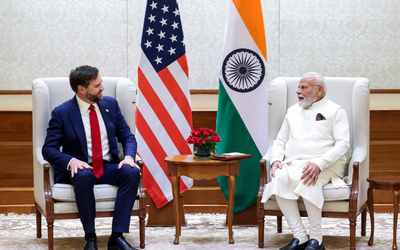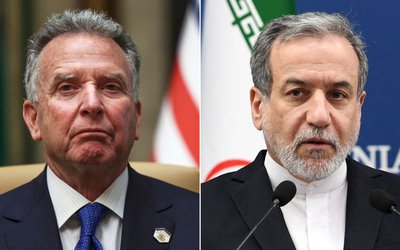
Even after the meeting between Indian Prime Minister Narendra Modi and Chinese president Xi Jinping, there is no immediate sign to see the receding the tensions erupted between two giants.
In an article published in Global times, Chinese scholar Long Xingchun accused India for violating international law. For a long time, India has been talking about international equality and non-interference in the internal affairs of others, but it has pursued hegemonic diplomacy in South Asia, seriously violating the UN Charter and undermining the basic norms of international relations. Through mass immigration to Sikkim, ultimately leading to control of the Sikkim parliament, India annexed Sikkim as one of its states.
“India controls Bhutan's defense and diplomacy, seriously violating Bhutan's sovereignty and national interests. Indians have migrated in large numbers to Nepal and Bhutan, interfering with Nepal's internal affairs. The first challenge for Nepal and Bhutan is to avoid becoming a state of India, like Sikkim,” Chinese author Long Xingchun writes in Global Times.
According to author, Western countries are attempting to use India to contain China, indulging India's hegemony in South Asia. For example, when India blockaded Nepal in 2015, Western governments and media kept silent, ignoring India's hegemony over the small countries of South Asia.
“Indian troops invaded China's Doklam area in the name of helping Bhutan, but in fact the invasion was intended to help India by making use of Bhutan. “ Even if India were requested to defend Bhutan's territory, this could only be limited to its established territory, not the disputed area. Otherwise, under India's logic, if the Pakistani government requests, a third country's army can enter the area disputed by India and Pakistan, including India-controlled Kashmir,” writes author.
He further writes, “though the statement of the Indian Ministry of External Affairs evaded the issue, Indian experts, scholars and the media openly pointed out the Indian army's real motive of this action: to prevent China's construction in the Doklam area and possible future military deployment, which could block the road from mainland India to the "chicken neck" of northeast India. Northeast Indian people don't identify closely with India, and there are several armed organizations striving for northeastern states' independence from India.
The author argued that this incursion reflects that India fears China can quickly separate mainland India from northeast India through military means, dividing India into two pieces. In this case, northeast India might take the opportunity to become independent. India has interpreted China's infrastructure construction in Tibet as having a geopolitical intention against India. India itself is unable to do the same for its northeastern part, so it is trying to stop China's road construction.
“India's incursion, based on its own strategic judgment, is a clear violation of international law. Indian Defense Minister Arun Jaitley claimed that India was "not the 1962 India anymore." However, China's situation in 1962 was even direr. At present, though the US and other Western countries have the intention to contain China through supporting India, they have a wide range of common interests with China. Therefore, Western countries cannot unconditionally stand on the side of India about India's incursion into China's territory. As for the territorial dispute between China and Bhutan, it should be resolved by both sides and India must respect Bhutan's sovereignty,” writes Chinese scholar Long Xingchun
“China can show the region and the international community or even the UN Security Council its evidence to illustrate China's position. It highlights China's sincerity and effort to maintain peace as a responsible big power. It will never resort to force till it is the last choice,” said author.
- NC-UML COALITION: In Turmoil
- Apr 27, 2025
- TEACHERS ON STRIKE: Students' Future In Jeopardy
- Apr 25, 2025
- NEPAL-THAILAND: Joint Business Council
- Apr 13, 2025
- BIMSTEC SUMMIT: Nepal’s Stand
- Apr 11, 2025
- IME GROUP: Expands Into Paper Industry
- Mar 24, 2025















